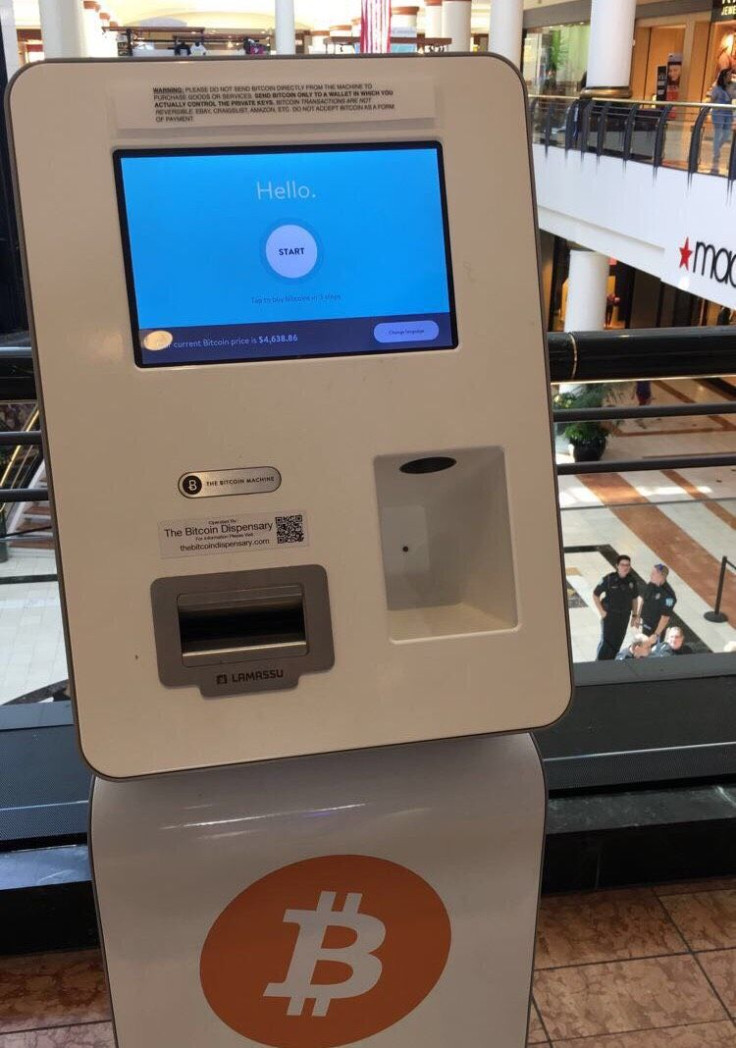Wu-Tang Clan's Ghostface Killah Offers Questionable Cryptocurrency

A new cryptocurrency firm co-founded by rapper Ghostface Killah of the Wu-Tang Clan hopes to raise $30 million through an imminent token sale, sometimes also called an initial coin offering. The Las Vegas-based company Cream Capital is named after Wu-Tang’s hit song “C.R.E.A.M.,” which stands for “Cash Rules Everything Around Me." Now this blockchain-centric startup is putting a new twist on the acronym: “Crypto Rules Everything Around Me.” There’s just one problem: Experts say this team’s business strategy could be problematic.
Cream Capital plans to launch two tokens. One of them, the cream cash token, is supposed to always have the same value as $1. Bitcoin prices oscillate every day, which makes a lot of mainstream users and investors nervous. Cream Capital aims to create a more predictable cryptocurrency, one that works at any business accepting dollars via mainstream credit cards.
“We’ll have a smart contract address,” Cream Capital co-founder Brett Westbrook told International Business Times. “You can send your ether to it and get cream cash.” In order to stabilize this cash token, Cream Capital is selling $CREAM tokens in the October ICO, formerly called cream dividend tokens. The startup's Ethereum-based system is mostly centralized, which makes it fundamentally different than bitcoin or ether tokens.
The first issue with this model, aside from the obvious security risks of a quasi-centralized cryptocurrency platform, is that the company does not yet have a unique debit card or an agreement with established payment processors such as Visa or MasterCard. “No partnerships have officially been signed yet,” Westbrook said. So spending cream cash wouldn’t be noticeably easier than shopping with bitcoin for quite a while. However, the cream tokens could be traded and stored in the meantime.

Westbrook said Cream Capital already has six bitcoin ATMs in North Carolina, an ATM network the company plans to rapidly expand until it reaches around half of the global cryptocurrency ATM market. Aside from bold claims about large-scale ATM expansion, using a public ICO to sell $CREAM tokens is sure to raise eyebrows.
"A lot of the allure of getting invested with cryptocurrency is the fact that you can grow your assets… We're providing a way that people can keep growing the value of their assets,” Westbrook told IBT. “Whenever you own cream cash, you'll be able to go into the cream digital asset exchange and you'll be able to stake your cream cash in our network for certain periods of time. And the longer that you stake your cream cash with us, the more dividends [$CREAM] that you will be issued.”
The U.S. Securities and Exchange Commission has explicitly warned against tokens potentially categorized as securities. This is the same issue already plaguing LydianCoin, the cryptocurrency Paris Hilton promoted on Instagram and Twitter. Law enforcement probably won’t crack down on ICOs like LydianCoin unless someone actually takes the startup to court. Even so, if the team behind a new cryptocurrency promises profits solely based on the efforts of the promoter or a third party, then it could be illegal to sell this token to the general public.
"It [$CREAM] is meant to be a way to store value, protect people against things like inflation, market shrinkage and will even outperform some mutual funds," Westbrook said. When asked if this $CREAM token functions somewhat like a security, he replied: “In a sense it does.”
This idea leaves some cryptocurrency veterans flabbergasted. “That sounds super illegal,” Aram Barnett, CEO of the crypto-centric hedge fund Alluminate, told IBT. “When I see stuff like that, ideas backed by celebrities for mainstream adoption, I’m very hesitant, to say the least… I really get pissed off when I see stuff like that [ICO].”
Westbrook said his legal team is communicating directly with regulators, seeking guidance to ensure the ICO will be lawful. "Many believe it [$CREAM] represented shares or equity in the company when it did not," he added. "It's another layer of transactability within the token ecosystem that has the potential to provide value growth over time."
However, it's hard to say how compliance would work in this case, says one expert. “Any time you have a right to profits or dividends associated with a token, you run an increased risk that the token may be deemed a security under applicable securities laws,” attorney Alan Cohn, co-chair of Steptoe & Johnson LLP’s Blockchain and Digital Currency practice, told IBT.
Regardless of whether the $CREAM token is a security, the cash token would still require the same time-consuming paperwork that currently irks bitcoin shoppers. Every time someone buys coffee with cryptocurrency the shopper needs to record the transaction, just as if they'd bought or sold a house.
Lisa Zarlenga, a tax attorney at Steptoe & Johnson LLP, told IBT any purchase with cream cash could count as a “taxable event,” since cryptocurrency is considered "property” by current tax laws. Congress recently proposed a bill to grant exceptions for cryptocurrency purchases worth less than $600. There’s still no guarantee this bill will become law any time soon.
To make matters worse, cream cash users could be forced to do even more paperwork if Cream Capital fails to stabilize the token’s real value. Most currencies, whether digital or traditional, naturally fluctuate in value. Tying a token’s value to the American dollar will be tricky. “If the value floats, and it’s not exactly a dollar, you need to record all the gains or losses [per transaction],” Zarlenga said. This cash token basically works like a blockchain-based virtual dollar, with a few extra steps.
"My main challenge to the Cream team would be that they need to justify why they think it is necessary to over-engineer a synthetic version of dollars and reward points." Aaron Lasher, Chief Marketing Officer at the bitcoin wallet provider Bread, told IBT. "Using dollars is easy, and I can get 1 to 5 percent cash back on using my credit cards. What consumer incentive is there to use Cream?"

On the other hand, Cream Capital plans to offer quick cryptocurrency access and simple wallet addresses, compared to the complex counterparts most bitcoin users have today. “Vendors, people who might be interested in accepting bitcoin as a form of payment, don’t want to accept a payment that might be worth 20 percent less tomorrow,” Westbrook said. “A few of the hurdles that cryptocurrency faces today are accessibility and transactability."
The startup team is passionate about making cryptocurrency more accessible for average Americans. Advisors include Bitcoin Dispensary President Parker Emmerson. Only time will tell if the token sale later this month will launch Ghostface Killah's cryptocurrency firm as one of the blockchain industry's newest power players.
Update: This story was updated to clarify Cream Capital will no longer call the secondary token a dividend. To avoid confusion, the token is now simply called "$CREAM."
© Copyright IBTimes 2025. All rights reserved.




















